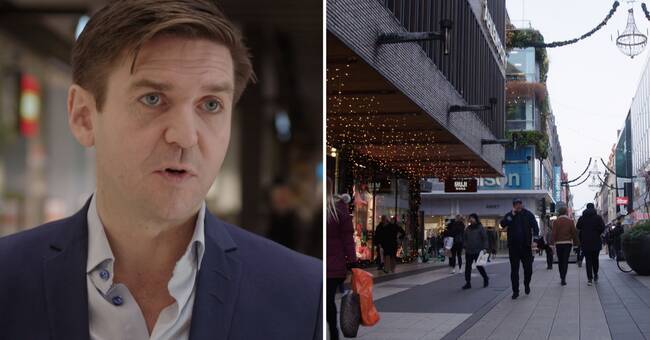There are usually record sales during the autumn sale, which go by the names "Black friday" and "Black week".
But this year, the industry is unusually uncertain about how sales will be.
One of the scales is an increased negative attitude towards "Black Friday", which is based on concerns about the climate and that society in general suffers from overconsumption.
In the second scale, the industry believes in an increased interest in visiting physical stores.
- It is very difficult to predict this year's sales.
Last year, we saw a decline in the actual "Black Friday" but a positive development for the whole week, says Patrick Höijer, Sweden manager at the payment solution company Nets.
"Concern for the environment"
Nets conducts an annual survey regarding Swedes' consumption during Black Friday.
A read day that has now grown into a sale week.
The Swedes' attitude is that they will shop less online this year.
62 percent, compared with 65 percent last year, state that they will shop less this year compared to the year before.
At the same time, more and more people are skeptical of the Black Friday phenomenon.
33 percent are negative compared to 28 percent last year.
- It is mainly concerns about the climate and overconsumption that people state as reasons for not wanting to buy anything.
Secondly, the reason is that you feel cheated by the traders.
This is because some retailers in some cases raised prices before the sale and thus there has been no price reduction.
At the same time, we believe there is a pent-up need to visit physical stores, which have been hampered during the pandemic, says Patrick Höijer.
Came from the USA in 2013
The phenomenon Black Friday originally comes from the USA where people are free at the end of November due to the holiday Thanksgiving and it has meant a natural start of the Christmas shopping.
The phenomenon did not appear in Sweden until 2013.
- We still believe that many will take advantage of the sale and shop both online and in store because there are great opportunities to buy goods at a cheaper price, says Patrick Höijer.

